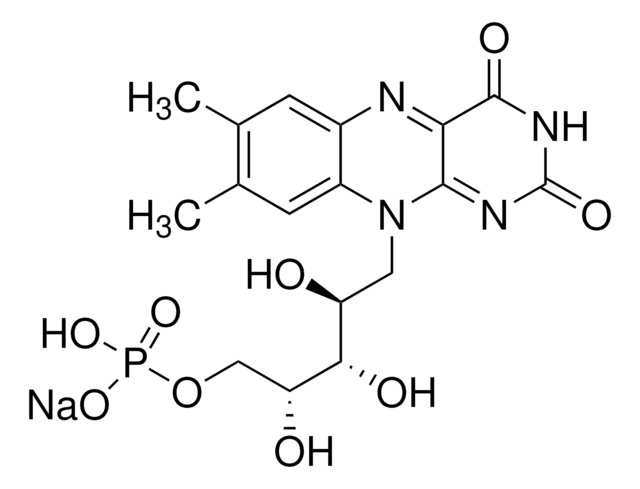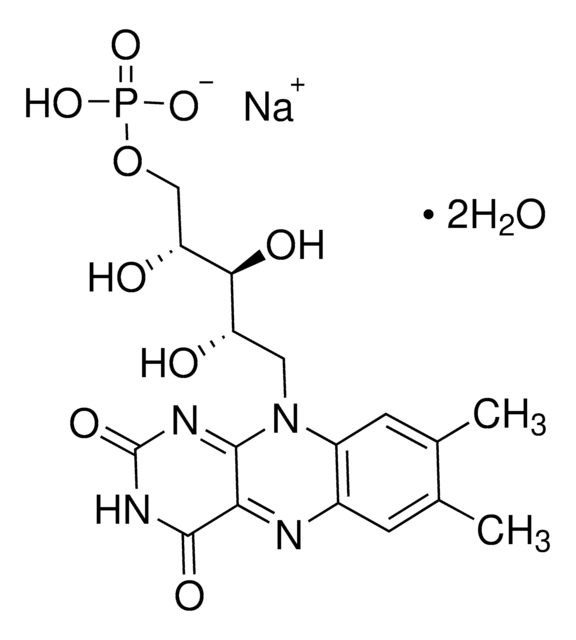R0630000
Riboflavin sodium phosphate
European Pharmacopoeia (EP) Reference Standard
Synonym(s):
Riboflavin 5′-monophosphate sodium salt, Riboflavin Sodium phosphate
About This Item
Recommended Products
biological source
synthetic
grade
pharmaceutical primary standard
Agency
EP
API family
riboflavin
form
solid
manufacturer/tradename
EDQM
technique(s)
gas chromatography (GC): suitable
liquid chromatography (LC): suitable
application(s)
pharmaceutical (small molecule)
format
neat
storage temp.
2-8°C
SMILES string
[Na+].Cc1cc2N=C3C(=O)NC(=O)N=C3N(C[C@H](O)[C@H](O)[C@H](O)COP(O)([O-])=O)c2cc1C
InChI
1S/C17H21N4O9P.Na/c1-7-3-9-10(4-8(7)2)21(15-13(18-9)16(25)20-17(26)19-15)5-11(22)14(24)12(23)6-30-31(27,28)29;/h3-4,11-12,14,22-24H,5-6H2,1-2H3,(H,20,25,26)(H2,27,28,29);/q;+1/p-1/t11-,12+,14-;/m0./s1
InChI key
OHSHFZJLPYLRIP-BMZHGHOISA-M
Looking for similar products? Visit Product Comparison Guide
General description
Application
Packaging
Other Notes
related product
Storage Class Code
11 - Combustible Solids
WGK
WGK 1
Flash Point(F)
Not applicable
Flash Point(C)
Not applicable
Choose from one of the most recent versions:
Certificates of Analysis (COA)
Sorry, we don't have COAs for this product available online at this time.
If you need assistance, please contact Customer Support.
Already Own This Product?
Find documentation for the products that you have recently purchased in the Document Library.
Customers Also Viewed
Our team of scientists has experience in all areas of research including Life Science, Material Science, Chemical Synthesis, Chromatography, Analytical and many others.
Contact Technical Service





